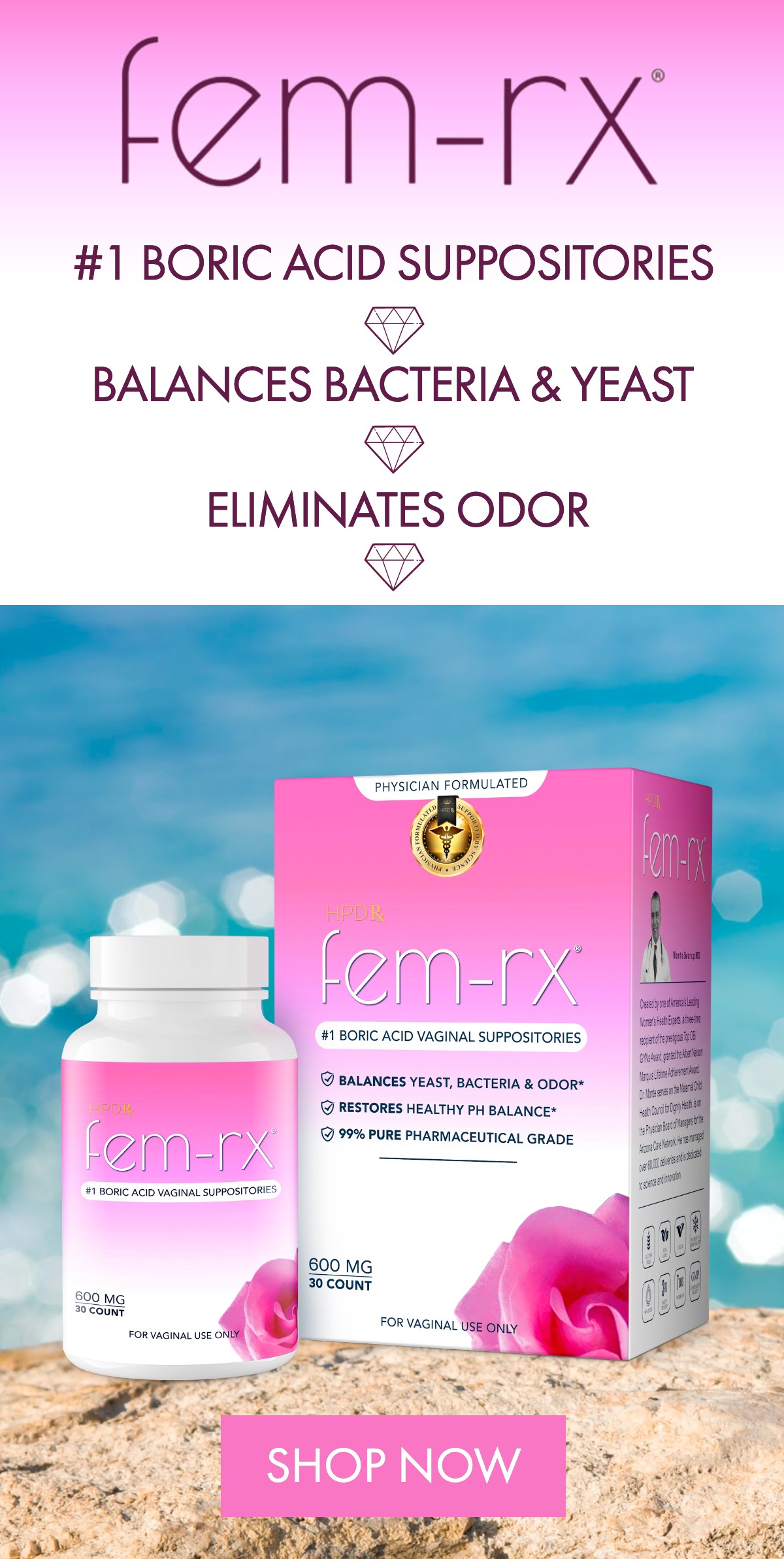
Consuming the proper supplements can help you strengthen your vaginal microbiome and enhance your overall vaginal health. Even though the vagina contains an individual ecosystem and cleans itself, you still must consume the proper vitamins, minerals, and probiotics to sustain your vaginal microbiome, functionality, and health.
Of course, you should always strive to maintain a nutritious diet of fruits and vegetables to consume precious vitamins and minerals. However, supplements can ensure you preserve healthy vaginal pH levels to prevent infections and other vaginal health-related issues.
Here are the top supplements to help improve your vaginal health and sustain your vaginal pH levels.
1) Vaginal Probiotics
Probiotics are good bacteria (live microorganisms) with similar traits as the natural good bacteria in your body and vagina. If your vagina begins to have an imbalance of more bad bacteria than good, consuming probiotics will assist in restoring a healthy vaginal pH balance. That way, you can reduce your risk of vaginal infection.
Not all probiotic supplements contain the same probiotic strains. According to medical studies, some of the most effective probiotic strains for enhancing vaginal health and restoring vaginal flora are Lactobacillus acidophilus and Lactobacillus rhamnoses. Specifically choose strains GR-1 and RC-14 which are the most studied vaginal probiotics. So, if you can find a probiotic supplement containing a minimum of 5 to 20 million colony-forming units of these strains, it will be ideal for your vaginal health.
Some people may experience mild side effects, such as bloating and gas, after consuming probiotics. However, most people do not experience adverse side effects as long as they consume the recommended daily dosage amount.
Talk to your doctor if you have questions about a particular probiotic supplement and how it might affect your health. They may recommend consuming foods containing probiotics before trying any supplement product. The most popular foods with probiotics include kefir, yogurt, sauerkraut, and kimchi.
2) Zinc
Zinc supplements are popular for men and women. Men like taking zinc supplements because zinc helps boost their testosterone levels for increased energy and strength. But women can also benefit from zinc supplements.
Studies have shown that zinc can help maintain a postmenopausal woman’s vaginal health by increasing her natural vaginal lubrication and strengthening vaginal tissue.
3) Vitamin E
Vitamin E does a lot to enhance vaginal health for postmenopausal women. Since Vitamin E is a powerful antioxidant, it can effectively strengthen the immune system to reduce oxidative stress and prevent infections, including vaginal infections. Some medical studies even suggest using a vaginal suppository containing Vitamin E can boost vaginal health.
Talk to your doctor before using any Vitamin E supplement or suppository to ensure it is healthy for you to use.
4) Vitamin D
Vitamin D is best known for boosting the strength of the immune system and the bones in the body. But did you know that Vitamin D can also enhance a menopausal woman’s vaginal health? New research studies have found a link between Vitamin D consumption and vagina bacteria, including in pregnant women.
Either way, consuming Vitamin D is essential for sustaining a healthy body and immune system.
5) Vitamin C
Vitamin C is another critical vitamin for boosting immune health and function. Since Vitamin C is a robust antioxidant, it helps the body destroy free radicals and improve immune system responses to viruses and other foreign invaders.
Some vaginal gel products contain Vitamin C because they can help reduce your vaginal pH levels and improve your vaginal microbiome. But whether you want to use a supplement or vaginal gel containing Vitamin C, you should talk to your doctor first. They can guide you on which is better for improving your vaginal health.
6) Fish Oil
Menopausal women experience hormonal changes which reduce their natural vaginal lubrication and increase the risk of vaginal dryness. Some medical studies have shown that consuming the omega-3 fatty acids found in fish oil can potentially increase natural vaginal lubrication and strength the health of vaginal tissue. And if you consume omega-3 fatty acids and Vitamin D simultaneously, it may help boost your estrogen levels too.
Vaginal Microbiomes
The vaginal microbiome is a group of microbes (e.g., fungi, bacteria) in a woman’s vagina. Every woman needs a healthy and stable vaginal microbiome to avoid vaginal infections and sustain her vaginal health.
To have a healthy vaginal microbiome, you need enough good bacteria in the vagina to prevent the harmful bacteria from taking over and causing infections and other issues. That, in turn, enhances your sexual and reproductive health too.
Lactobacillus is a beneficial bacteria type that produces enough vaginal acidity (lactic acid) to stop harmful bacteria from spreading. We recommended probiotic supplements with Lactobacillus because it is a family of bacteria that work together to produce a healthy vaginal environment for a woman.
Healthy Vaginal pH Levels
Most gynecologists and primary care physicians recommend a vaginal pH between 3.8 and 4.5 to sustain good vaginal health and functionality. This pH range enables a suitable acidic vaginal environment to support a healthy vaginal microbiome and prevent harmful bacteria from causing vaginal problems.
You can purchase an over-the-counter pH testing kit at any retail pharmacy store. Read the instructions carefully on how to measure your pH levels. You could also seek advice and guidance from your gynecologist or primary care physician if you have additional questions or concerns.
Vaginal pH Level Imbalance
Women with vaginal pH level imbalances may notice strange symptoms associated with their vaginal discharge, such as foul odors and unusual colors. Healthy vaginal discharge is usually odorless and white or transparent, so any weird smells and colors indicate problems with your vaginal pH level balance.
Certain lifestyle habits may be affecting your vaginal microbiome and pH levels. Here are some lifestyle tips for maintaining a healthy vaginal microbiome:
- Do not consume too much sugar in your diet
- Avoid douching
- Avoid using soaps or powders containing perfumes and fragrances
- Do not wear tight-fitted clothing
- Only use antibiotics temporarily to eliminate a dangerous bacterial-related health issue
- Practice safe sex to avoid direct contact with a man’s semen
Consult your doctor for further advice on avoiding or overcoming a vaginal pH level imbalance to improve your vaginal health and microbiome.









